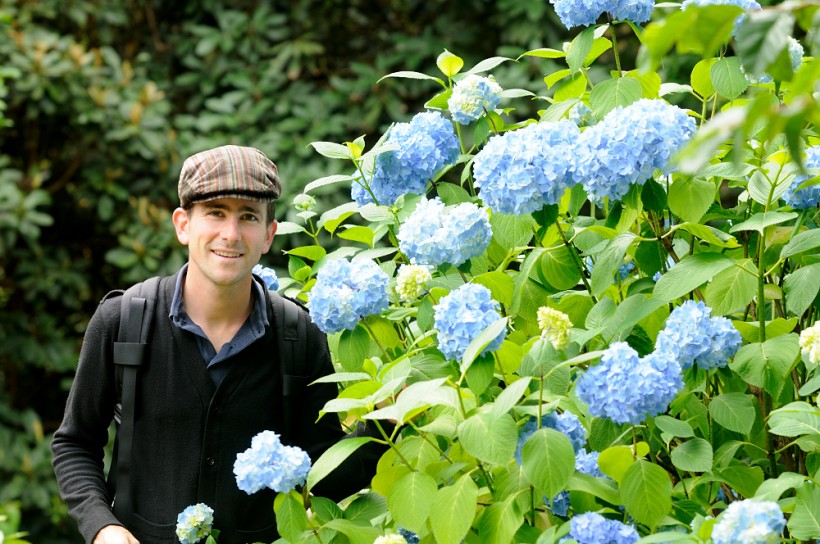Philippe Levesque wants his farm-in-a-box to help feed the world’s hungry, but the New Brunswick-based botanist and horticulturist must first raise $10,000 so that he can produce 200 boxes to validate his idea in Canada.
For the last year, Levesque, 34, has been working alone on producing a self-contained gardening model to share with the world. His solution: wooden boxes containing seeds, tools and instructions that will be honed to suit each region and community.
“I’ve met many farmers around the world and, in developing countries, I always thought, I’m so privileged; these people need the information I have. I could do so much to help,” said Levesque, who has worked in London’s Kew Gardens and in Australia where he conducted experiments in tropical farming on an ethnobotanical farm (one that studies the relationships between people and plants).
Levesque returned to Canada two years ago and is running an import-export nursery from Balmoral and trying to get his new business, the Agrarian Revolution, off the ground. It’s been difficult for him to devise a working model for the new venture because, although he has experience in running professional gardening-related businesses, this is a new kind of entrepreneurship for him.
But he is now energized after receiving a boost by participating in the B 4 Change accelerator program for social entrepreneurs at the Pond-Deshpande Centre at the University of New Brunswick. Levesque is among the first cohort of the six-month program which has been created to help social entrepreneurs — those who want to found a business that meets a social, economic or environmental need and turns a profit.
Levesque was awarded $6,000 by the Pond-Deshpande Centre but he gained more than money.
“With the Pond-Deshpande Centre’s help the Agrarian Revolution is taking off,” he said. “I needed to make my model marketable and the program has given me impetus. And it’s linked me with other contacts, including a Uganda-focused group that I may partner with.”
Now, he must validate his concept by selling variations of his boxes in stores across Canada. He needs to raise $10,000 to produce 100 gardening-themed boxes and 100 patio-themed boxes. If Canadians buy these, he will reinvest the money into producing his farm-in-a-box versions. The Canadian boxes will help pay for the farming boxes and, in time, he intends to charge the communities in developing countries a small sum for the boxes they receive.
“I believe that if we charge even a dollar or two, they will appreciate and utilize it,” he said.
He hopes that the first testing of the product in a developing country will take place later this year, probably in Uganda. He feels that using basic, sustainable farming methods is the best way to help poorer communities, citing the example of India, which he says has a high rate of suicide among farmers who are often in debt because of the steep cost of chemical fertilizers.
“We will start by building community gardens and I hope acceptance will come. I want everything to be local,” he said.
He is looking forward to sharing the knowledge acquired through his work and education, which includes studying horticulture at the Royal Horticultural Society in the United Kingdom and at the University of Guelph.
“We will target lack of water by letting farmers know which crops grow best in their conditions,” he said, his voice lively with anticipation.
“And there are a few plants that I believe will become our flagship plants. Amaranth, for instance, a Mexican plant, is great. You can eat the leaf and seed and it is heat and drought tolerant and the leftovers can be cooked. It’s not widespread yet but has a great future.”










